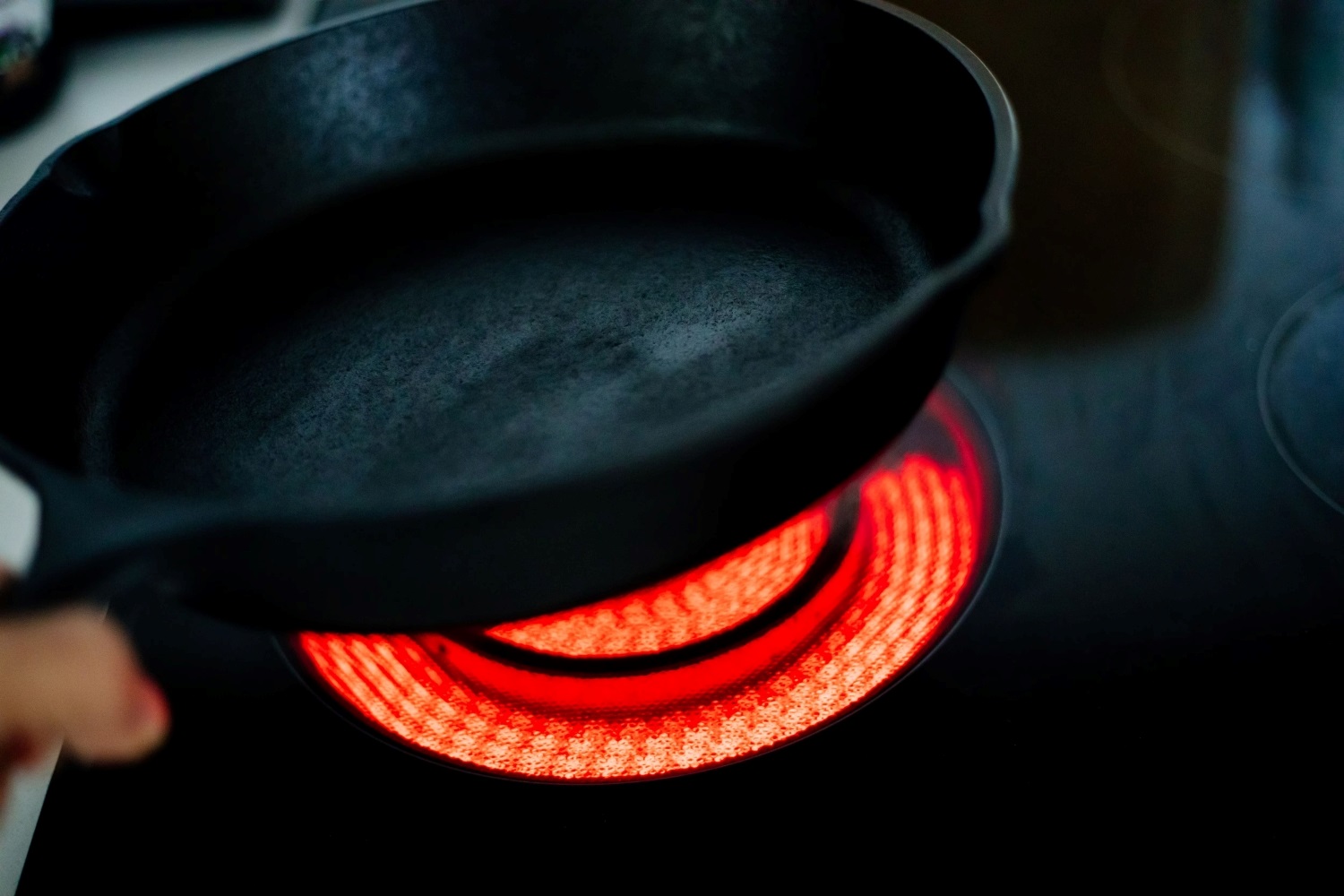Home>Science>The Surprising Truth About Using Dish Soap: Hot Vs Cold Water


Science
The Surprising Truth About Using Dish Soap: Hot Vs Cold Water
Published: January 16, 2024
Discover the science behind using dish soap with hot and cold water. Uncover the surprising truth and optimize your dishwashing routine today.
(Many of the links in this article redirect to a specific reviewed product. Your purchase of these products through affiliate links helps to generate commission for Noodls.com, at no extra cost. Learn more)
Table of Contents
Introduction
When it comes to doing the dishes, a common debate revolves around the temperature of the water used in conjunction with dish soap. Should you use hot water or cold water? Each side has its proponents, but what does science have to say about this domestic conundrum? The surprising truth is that the effectiveness of dish soap is influenced by the temperature of the water it's used with. In this article, we'll delve into the science behind dish soap and explore the impact of hot and cold water on its effectiveness. By understanding the underlying mechanisms, you'll be better equipped to make an informed decision the next time you tackle that sink full of dirty dishes.
We'll explore the fascinating interplay between water temperature and dish soap, shedding light on how each element contributes to the overall cleaning process. Additionally, we'll uncover the benefits and drawbacks of using hot versus cold water for dishwashing, providing you with valuable insights that can revolutionize your approach to this everyday task. So, buckle up and get ready to dive into the intriguing world of dishwashing science!
The Science Behind Dish Soap
Dish soap, often referred to as dishwashing liquid, is a staple in households worldwide. Its ability to cut through grease and grime makes it an indispensable tool for cleaning dishes effectively. But have you ever wondered how this seemingly simple product achieves such remarkable cleaning power?
At its core, dish soap is a surfactant, a substance that reduces the surface tension of water. This unique property allows it to penetrate and lift away stubborn food particles and grease from dishes, making the cleaning process more efficient. Surfactants consist of molecules with two distinct ends: a hydrophilic (water-attracting) head and a hydrophobic (water-repelling) tail. When dish soap is added to water, these molecules align themselves to form micelles, which are tiny clusters that trap grease and food particles, suspending them in the water and preventing them from reattaching to the dishes.
Moreover, the chemical composition of dish soap enables it to emulsify fats and oils, breaking them down into smaller droplets that can be easily rinsed away. This is particularly crucial when dealing with greasy dishes, as the dish soap effectively disperses the oils, allowing them to be washed off the dishes with water.
In addition to its surfactant properties, dish soap often contains other ingredients such as enzymes, fragrances, and antibacterial agents. Enzymes, for instance, help to break down complex food residues, making them easier to remove during the washing process. Fragrances are added to enhance the sensory experience of dishwashing, while antibacterial agents contribute to the hygiene aspect by helping to eliminate harmful bacteria.
Understanding the science behind dish soap is essential for optimizing its effectiveness. By comprehending how surfactants and other ingredients work together, you can make informed decisions about the temperature of the water you use, the amount of dish soap required, and the best techniques for achieving sparkling clean dishes.
In the next sections, we'll explore the impact of hot and cold water on the cleaning efficiency of dish soap, shedding light on the surprising differences between the two approaches. Let's dive into the fascinating world of dishwashing science and uncover the secrets that can revolutionize your dishwashing routine.
Effectiveness of Hot Water
When it comes to dishwashing, the temperature of the water plays a crucial role in determining the effectiveness of dish soap. Hot water, typically defined as water at or above 110°F (43°C), offers several advantages when used in conjunction with dish soap.
The primary benefit of hot water lies in its ability to enhance the overall cleaning power of dish soap. The higher temperature increases the kinetic energy of water molecules, leading to improved solubility and faster chemical reactions. This means that the surfactants in dish soap can more effectively penetrate and dislodge food particles and grease from dishes, resulting in a more thorough and efficient cleaning process.
Moreover, hot water aids in the emulsification of fats and oils. As the temperature rises, the viscosity of oils decreases, making them easier to break down and rinse away. When combined with dish soap, the higher temperature facilitates the dispersion of oils and grease, preventing them from re-depositing on the dishes and ensuring a more pristine finish.
In addition to its cleaning prowess, hot water also contributes to the hygiene aspect of dishwashing. The elevated temperature helps to kill certain bacteria and microorganisms, providing an added layer of sanitation to the dishwashing process. This is particularly beneficial when dealing with items that have come into contact with raw meat or other potentially harmful substances.
Furthermore, the use of hot water can expedite the drying process, as the heat aids in the evaporation of residual water droplets, resulting in faster and more efficient drying of the dishes.
However, it's important to exercise caution when using hot water, as excessively high temperatures can pose risks such as scalding and damage to delicate dishware. Additionally, hot water consumes more energy, contributing to higher utility costs and environmental impact.
In summary, hot water can significantly enhance the cleaning power and hygiene aspects of dishwashing when used in combination with dish soap. Its ability to improve solubility, aid in emulsification, and expedite drying makes it a compelling choice for tackling tough stains and achieving sparkling clean dishes. By understanding the impact of hot water on dishwashing, you can harness its benefits while taking necessary precautions to ensure safe and efficient dishwashing practices.
Effectiveness of Cold Water
Contrary to the popular belief that hot water is essential for effective dishwashing, cold water can also yield surprising results when paired with the right dish soap. While it may seem counterintuitive, cold water offers its own set of advantages in the dishwashing process.
The use of cold water is particularly beneficial when dealing with delicate items that are sensitive to heat, such as fine china, crystal glassware, and certain types of plastics. By using cold water, you can minimize the risk of thermal shock, which occurs when rapid temperature changes cause fragile materials to crack or shatter. This makes cold water an ideal choice for preserving the integrity of delicate dishware and ensuring their longevity.
Moreover, cold water is more energy-efficient than hot water, contributing to reduced utility costs and environmental impact. By opting for cold water, you can conserve energy while still achieving satisfactory cleaning results, making it a sustainable choice for eco-conscious individuals.
Additionally, cold water is gentler on the skin, making it more comfortable for individuals who are sensitive to hot water or have skin conditions that may be aggravated by high temperatures. This can enhance the overall dishwashing experience, promoting greater comfort and well-being for those engaged in this daily chore.
While cold water may not offer the same level of grease-cutting and bacteria-killing power as hot water, modern dish soaps are formulated to perform effectively in cooler temperatures. Advances in surfactant technology and detergent formulations have enabled dish soaps to deliver robust cleaning performance even when used with cold water, making it a viable option for everyday dishwashing needs.
In summary, the effectiveness of cold water in dishwashing should not be underestimated. Its gentle nature, energy efficiency, and compatibility with delicate dishware make it a compelling choice for certain cleaning scenarios. By understanding the unique benefits of cold water and its interaction with dish soap, you can make informed decisions that optimize the dishwashing process while catering to specific needs and preferences.
Benefits and Drawbacks of Hot vs Cold Water
When comparing the use of hot and cold water for dishwashing, it's essential to weigh the distinct benefits and drawbacks associated with each approach. Understanding the nuanced interplay between water temperature and dish soap is key to optimizing the dishwashing process and achieving sparkling clean dishes.
Benefits of Hot Water
- Enhanced Cleaning Power: Hot water increases the solubility of dish soap, allowing it to more effectively penetrate and dislodge food particles and grease from dishes. This results in a more thorough and efficient cleaning process, especially for heavily soiled items.
- Improved Emulsification: The higher temperature aids in the breakdown and dispersion of fats and oils, preventing them from re-depositing on the dishes and ensuring a pristine finish.
- Hygiene Advantages: Hot water can help kill certain bacteria and microorganisms, providing an added layer of sanitation to the dishwashing process, particularly important for items that have come into contact with raw meat or other potentially harmful substances.
- Expedited Drying: The use of hot water can accelerate the drying process, leading to faster and more efficient drying of the dishes.
Drawbacks of Hot Water
- Risk of Damage: Excessively high temperatures can pose risks such as scalding and damage to delicate dishware, necessitating caution during use.
- Energy Consumption: Hot water consumes more energy, contributing to higher utility costs and environmental impact, which may not align with sustainability goals.
Benefits of Cold Water
- Gentle on Delicate Items: Cold water is ideal for delicate dishware, minimizing the risk of thermal shock and preserving the integrity of fragile materials.
- Energy Efficiency: Cold water is more energy-efficient than hot water, contributing to reduced utility costs and environmental impact, aligning with sustainable practices.
- Skin Comfort: Cold water is gentler on the skin, providing a more comfortable dishwashing experience, particularly for individuals sensitive to hot water or with skin conditions.
Drawbacks of Cold Water
- Reduced Grease-Cutting Power: Cold water may not offer the same level of grease-cutting power as hot water, requiring additional effort for heavily soiled items.
- Limited Bacteria Elimination: Cold water may be less effective in killing certain bacteria and microorganisms compared to hot water, necessitating thorough cleaning practices.
In essence, the choice between hot and cold water for dishwashing involves a careful consideration of the specific cleaning needs, dishware characteristics, and sustainability objectives. By recognizing the unique benefits and drawbacks of each approach, individuals can tailor their dishwashing routine to achieve optimal results while aligning with their preferences and environmental values.
Conclusion
In conclusion, the temperature of the water used in conjunction with dish soap plays a pivotal role in determining the overall effectiveness of the dishwashing process. The interplay between hot and cold water and their interaction with dish soap unveils a fascinating array of benefits and drawbacks, each influencing the cleaning outcome in unique ways.
While hot water offers enhanced cleaning power, improved emulsification, and hygiene advantages, it also presents risks of damage and higher energy consumption. On the other hand, cold water's gentle nature, energy efficiency, and compatibility with delicate dishware are balanced by reduced grease-cutting power and limited bacteria elimination.
Understanding the nuanced dynamics of hot and cold water empowers individuals to make informed decisions tailored to their specific cleaning needs, dishware characteristics, and environmental considerations. By recognizing the distinct benefits and drawbacks of each approach, individuals can optimize their dishwashing routine to achieve sparkling clean dishes while aligning with their preferences and sustainability goals.
Ultimately, the choice between hot and cold water for dishwashing is not a one-size-fits-all decision but rather a thoughtful consideration that takes into account a multitude of factors. Whether it's harnessing the power of hot water for heavy-duty cleaning or embracing the gentleness and sustainability of cold water, the dishwashing process can be transformed into a harmonious blend of efficiency, care, and environmental consciousness.
As we navigate the realm of dishwashing science, it becomes clear that the temperature of the water is not just a matter of personal preference but a crucial element that can elevate the cleaning experience and contribute to a more sustainable lifestyle. By embracing the surprising truth about using dish soap with hot versus cold water, individuals can embark on a journey towards cleaner dishes, greater environmental responsibility, and a deeper appreciation for the intricate science behind this everyday chore.













